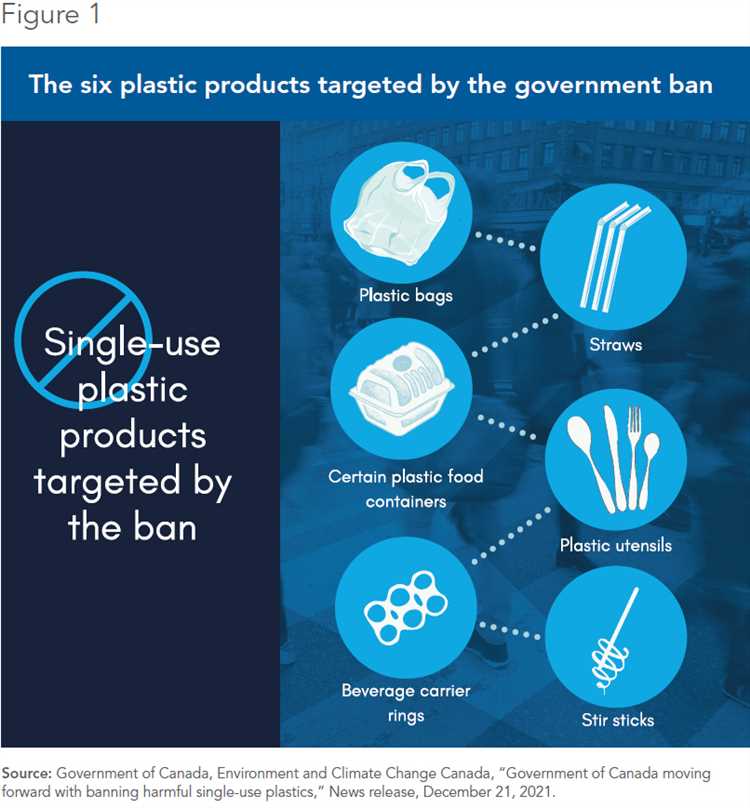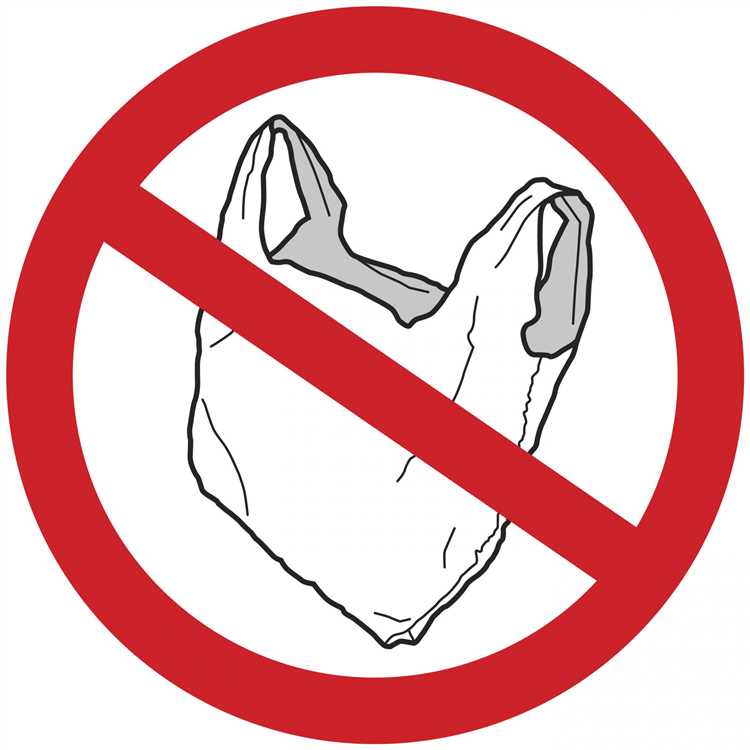
Plastic bag bans have gained significant popularity in recent years, as governments and environmentalists strive to reduce the detrimental impact of plastic waste on our planet. While it is undoubtedly essential to address the issue of plastic pollution, the consequences of implementing a plastic bag ban are often overlooked. In this article, we will delve into the negative effects of plastic bag bans and explore the potential ramifications for both consumers and the environment.
One of the primary concerns associated with plastic bag bans is the impact on jobs and the economy. The plastic bag industry supports thousands of workers globally, and banning these bags could result in significant job losses. Small businesses, such as local grocery stores or convenience shops, heavily rely on plastic bags as a cost-effective means of packaging and transporting products. The sudden ban on plastic bags could create financial hardships and lead to possible closures, ultimately affecting the livelihoods of many individuals.
Furthermore, the ban on plastic bags may not necessarily lead to a reduction in overall waste. Alternative options, such as paper bags or reusable cloth bags, often require more resources to produce and have a larger carbon footprint. For instance, paper bags require cutting down trees, consuming large amounts of water, and emitting more greenhouse gases during the manufacturing process. Reusable bags, on the other hand, may not be used frequently enough to fully offset the environmental impact caused by their production. In this way, the ban on plastic bags could potentially result in a shift of waste rather than a genuine reduction in it.
In conclusion, while the intention behind plastic bag bans is admirable, it is essential to consider the negative consequences they may bring about. From the potential loss of jobs and strain on local economies to the unintended increase in overall waste, the ban on plastic bags may have significant drawbacks. Finding a balance between addressing plastic pollution and ensuring the sustainability of local communities is crucial to create a comprehensive and effective solution.
- Economic Impact
- Environmental Consequences
- Conclusion
- Public Health Concerns
- Increased Usage of Alternative Materials
- Paper Bags
- Cloth Bags
- Job Losses in the Plastic Bag Industry
- Assistance Programs
- The Need for Economic Diversity
- Unintended Consequences on Small Businesses
- Question-answer:
- What are the negative effects of banning plastic bags?
- How does the ban on plastic bags affect small businesses?
- Does banning plastic bags reduce litter?
- Are there any alternative approaches to reducing plastic bag usage?
- Do other countries have successful plastic bag bans?
- What are the negative effects of implementing a plastic bag ban?
Economic Impact
The implementation of a plastic bag ban can have various economic consequences. While the ban aims to reduce the negative environmental impact of plastic bags, it can also lead to negative effects on businesses and consumers.
- Increased Costs for Businesses: Many businesses rely on the use of plastic bags for packaging and distributing products. With the ban in place, they will need to find alternatives, such as paper or reusable bags, which can be more expensive. This can increase their production and operational costs, which may ultimately be passed on to consumers through higher prices.
- Job Losses in the Plastic Bag Industry: The ban on plastic bags can result in job losses in the plastic bag manufacturing industry. As the demand for plastic bags decreases, manufacturers may be forced to downsize or shut down their operations, leading to layoffs and unemployment in the industry.
- Impact on Small Businesses: Small businesses, especially those with tight profit margins, may find it challenging to absorb the increased costs associated with alternative packaging solutions. This can negatively impact their competitiveness and viability in the market.
- Consumer Behavior Changes: The ban on plastic bags can also lead to changes in consumer behavior. While some consumers may readily adapt to using reusable bags, others may find it inconvenient or forget to bring their own bags. This can result in decreased sales for businesses as customers may choose not to purchase products if they do not have a bag available.
- Unintended Consequences: Plastic bag bans may inadvertently contribute to the use of other single-use products, such as paper bags or plastic alternatives, which may also have negative environmental impacts. Furthermore, the ban may create a market for counterfeit or low-quality reusable bags that do not meet safety or durability standards.
It is important for policymakers to consider these potential economic consequences when implementing a plastic bag ban. They must evaluate the costs and benefits to businesses, consumers, and the overall economy. Alternative solutions, such as recycling programs or promoting more sustainable plastic bag options, should also be explored.
Environmental Consequences

While the intention behind banning plastic bags is to reduce environmental harm, there are several unintended consequences that can negatively impact the environment.
1. Increased use of alternative materials:
With the ban on plastic bags, many people turn to using alternative materials such as paper or cloth bags. While these materials are generally considered more eco-friendly, their production and disposal also have environmental consequences. The production of paper bags, for example, requires the cutting down of trees, which contributes to deforestation. Additionally, the disposal of cloth bags requires energy for washing and drying, which can contribute to greenhouse gas emissions.
2. Increased waste:
Plastic bags are often reused for various purposes, such as lining small trash cans or picking up pet waste. Without the availability of plastic bags, people may resort to using more single-use alternatives, leading to increased waste generation. This can further burden landfills and require additional resources for waste management.
3. Hygiene and health risks:
Plastic bags are essential in certain industries, such as healthcare and food service, where hygiene is crucial. The ban on plastic bags in these industries can lead to the use of alternative materials that are not as hygienic, increasing the risk of contamination and the spread of diseases.
4. Increased energy consumption:
The production of alternative materials often requires more energy compared to plastic bags, contributing to increased energy consumption and associated environmental impacts. For instance, the production of paper bags requires significant amounts of water, energy, and chemicals.
Conclusion
The ban on plastic bags may have unintended environmental consequences due to the use of alternative materials, increased waste, hygiene and health risks, and increased energy consumption. It is important to carefully consider these potential consequences and explore alternative solutions that balance environmental concerns while also addressing the challenges of plastic waste.
Public Health Concerns
While the intention behind banning plastic bags is to reduce environmental pollution, there are several public health concerns that arise as a result of this initiative. One of the major concerns is the increased risk of food contamination.
Plastic bags are commonly used to carry groceries and other food items. They provide a barrier that helps prevent cross-contamination between different food products and reduce the risk of foodborne illnesses. With the ban on plastic bags, consumers are forced to find alternatives such as reusable bags or paper bags. However, these replacements lack the same level of protection against contamination.
Reusable bags, for example, can easily become contaminated with bacteria such as E. coli and salmonella if not properly cleaned after each use. Studies have shown that a significant percentage of reusable bags are contaminated with bacteria, posing a risk to public health. Furthermore, paper bags, when exposed to moisture or liquids, can become a breeding ground for bacteria, which can then contaminate the food items placed inside.
Another public health concern related to the plastic bag ban is the increased use of single-use plastic alternatives. Without the option of using plastic bags, consumers are more likely to resort to other forms of single-use plastic packaging, such as plastic wraps and containers. These alternatives, while serving the purpose of carrying and storing food items, contribute to the overall plastic waste problem and environmental pollution.
The increased production and use of single-use plastic alternatives also have negative health implications. These plastics are often made with toxic chemicals that can leach into food and beverages, posing a risk to consumers. Studies have linked the exposure to certain plastic chemicals, such as bisphenol A (BPA), with various health issues, including hormonal imbalances, reproductive problems, and an increased risk of certain cancers.
In conclusion, while the ban on plastic bags aims to address environmental concerns, it is important to consider the potential public health consequences. The need for alternative bags and packaging options that prioritize both environmental sustainability and public health protection is crucial.
Increased Usage of Alternative Materials
One of the consequences of plastic bag bans is the increased usage of alternative materials for packaging and carrying goods. With the aim of reducing environmental pollution from plastic waste, many countries and cities have implemented bans or restrictions on the use of single-use plastic bags.
As a result, consumers and businesses have turned to alternative materials such as paper bags, cloth bags, and biodegradable bags. While these options may seem more sustainable, they also have their drawbacks.
Paper Bags
One popular alternative to plastic bags is paper bags. Paper bags are often seen as a more environmentally friendly option because they are biodegradable and can be recycled. However, the production of paper bags requires more resources and energy compared to plastic bags. The process of manufacturing paper bags also involves cutting down trees, which contributes to deforestation.
Cloth Bags
Cloth bags, typically made from materials such as cotton or canvas, are another alternative to plastic bags. They are reusable and durable, making them a popular choice among environmentally conscious consumers. However, the production of cloth bags also has its environmental impact. The cultivation of cotton, for example, requires large amounts of water and pesticides, which can be harmful to the environment.
| Alternative Material | Pros | Cons |
|---|---|---|
| Biodegradable Bags | Break down over time, reducing pollution | May still require fossil fuels for production |
| Paper Bags | Biodegradable and recyclable | Require more resources for production |
| Cloth Bags | Reusable and durable | Production impact from cotton cultivation |
It is important to consider the overall environmental impact of alternative materials when evaluating the effectiveness of plastic bag bans. While these options may offer advantages over plastic bags, they also have their downsides. Further research and innovation are necessary to develop truly sustainable solutions for packaging and carrying goods.
Job Losses in the Plastic Bag Industry

While the plastic bag ban may be beneficial for the environment, it comes at a cost for the workers employed in the plastic bag industry. The implementation of such bans has led to a significant decline in job opportunities and income for those working in this sector.
Decrease in Employment Opportunities
With the ban in place, the demand for plastic bags drastically decreases, leading to the closure of many manufacturing plants and factories. These closures result in a decrease in employment opportunities for workers involved in bag production, including machine operators, maintenance workers, and quality control technicians.
Loss of Income
Job losses within the plastic bag industry have a severe impact on the livelihoods of workers and their families. Many individuals find themselves unemployed and struggle to find alternative employment in a different industry. The loss of income not only affects the workers but also has a ripple effect on the local economy, leading to a downturn in the overall economic growth of the region.
Assistance Programs

Recognizing the impact of job losses, some governments and organizations have implemented assistance programs to help workers transition into other fields. These programs may include skill development training, job placement services, and financial support to start new businesses.
The Need for Economic Diversity
To mitigate the negative effects of job losses in the plastic bag industry, it is crucial for governments and communities to focus on promoting economic diversity. By encouraging the growth of other industries, communities can provide alternative employment opportunities for workers affected by the plastic bag ban. This can include investing in renewable energy, promoting local agriculture, or supporting the development of eco-friendly products.
| Lost Jobs | Economic Impact |
|---|---|
| Factory Workers | Decreased local spending power |
| Machine Operators | Reduced tax revenue |
| Maintenance Workers | Increased unemployment rate |
| Quality Control Technicians | Dependence on government assistance |
Unintended Consequences on Small Businesses
While the plastic bag ban may have been implemented with good intentions, it has had unintended consequences on small businesses. Many small retailers rely on the use of plastic bags for packaging and carrying products, and the ban has forced them to find alternative solutions.
The cost of transitioning to alternative packaging materials such as paper bags or reusable bags can be a burden for small businesses. Paper bags, for example, are more expensive than plastic bags and can eat into the profit margins of small retailers. Additionally, reusable bags may require initial investment to purchase and can also be a hassle for businesses to maintain and keep in stock.
Furthermore, the ban on plastic bags has resulted in changes in consumer behavior. Some consumers may forget to bring their own bags or may simply not want to pay extra for the alternative options. This can lead to a decrease in sales for small businesses as customers may choose to shop elsewhere or purchase fewer items.
Moreover, small businesses that rely on impulse purchases may face challenges due to the plastic bag ban. Without the convenience of plastic bags, customers may be less likely to make spontaneous purchases as they would have to find alternative ways to carry their items. This can have a negative impact on sales and revenue for businesses that heavily depend on impulse buying.
In conclusion, the plastic bag ban has unintended consequences on small businesses. The cost of transitioning to alternative packaging, changes in consumer behavior, and the impact on impulse purchases can pose challenges for small retailers. It is important to consider these unintended consequences and potential negative effects on small businesses when implementing such policies in the future.
Question-answer:
What are the negative effects of banning plastic bags?
The negative effects of banning plastic bags include the increase in the use of paper bags, which leads to deforestation and increased carbon emissions from the production and transportation of paper bags. Additionally, the ban can result in job losses in the plastic bag industry.
How does the ban on plastic bags affect small businesses?
The ban on plastic bags can negatively affect small businesses, especially those in the retail sector. Small businesses may struggle to afford alternative packaging options, such as paper bags or reusable bags, which can be more expensive. This can lead to a decrease in profit margins or increased costs for customers.
Does banning plastic bags reduce litter?
Yes, banning plastic bags can help reduce litter to some extent. However, it does not completely solve the problem of littering as people may still litter with other items like paper bags or reusable bags. Additionally, the ban on plastic bags can lead to an increase in the use of other single-use plastic items, such as plastic water bottles, which can contribute to litter.
Are there any alternative approaches to reducing plastic bag usage?
Yes, there are alternative approaches to reducing plastic bag usage. These include implementing a plastic bag tax or fee, promoting reusable bag usage through education and awareness campaigns, and improving recycling infrastructure to encourage the proper disposal and recycling of plastic bags.
Do other countries have successful plastic bag bans?
Yes, many countries around the world have successfully implemented plastic bag bans and seen positive results. For example, countries like Ireland, Rwanda, and Bangladesh have significantly reduced plastic bag usage and litter through their bans. These countries have implemented comprehensive policies that include public awareness campaigns, alternative packaging options, and strict enforcement.
What are the negative effects of implementing a plastic bag ban?
Implementing a plastic bag ban can have negative effects on the economy, as it can lead to job losses in the manufacturing and retail sectors. It can also result in increased costs for consumers, as alternative options like reusable bags may be more expensive. Additionally, the ban can lead to a higher usage of other single-use plastics such as trash bags, which can harm the environment.